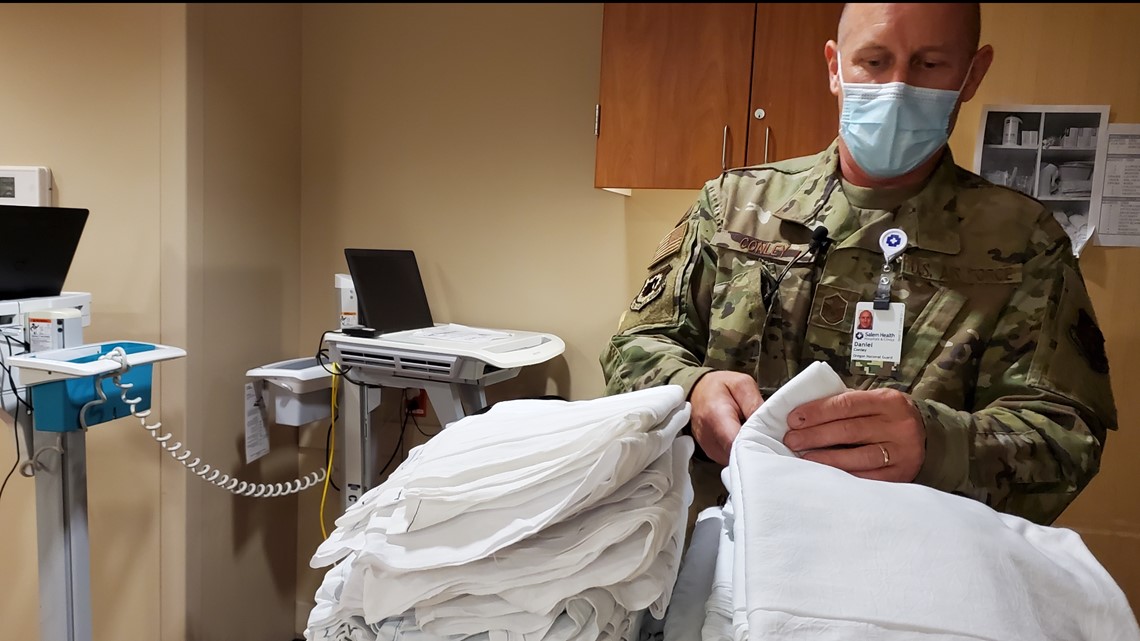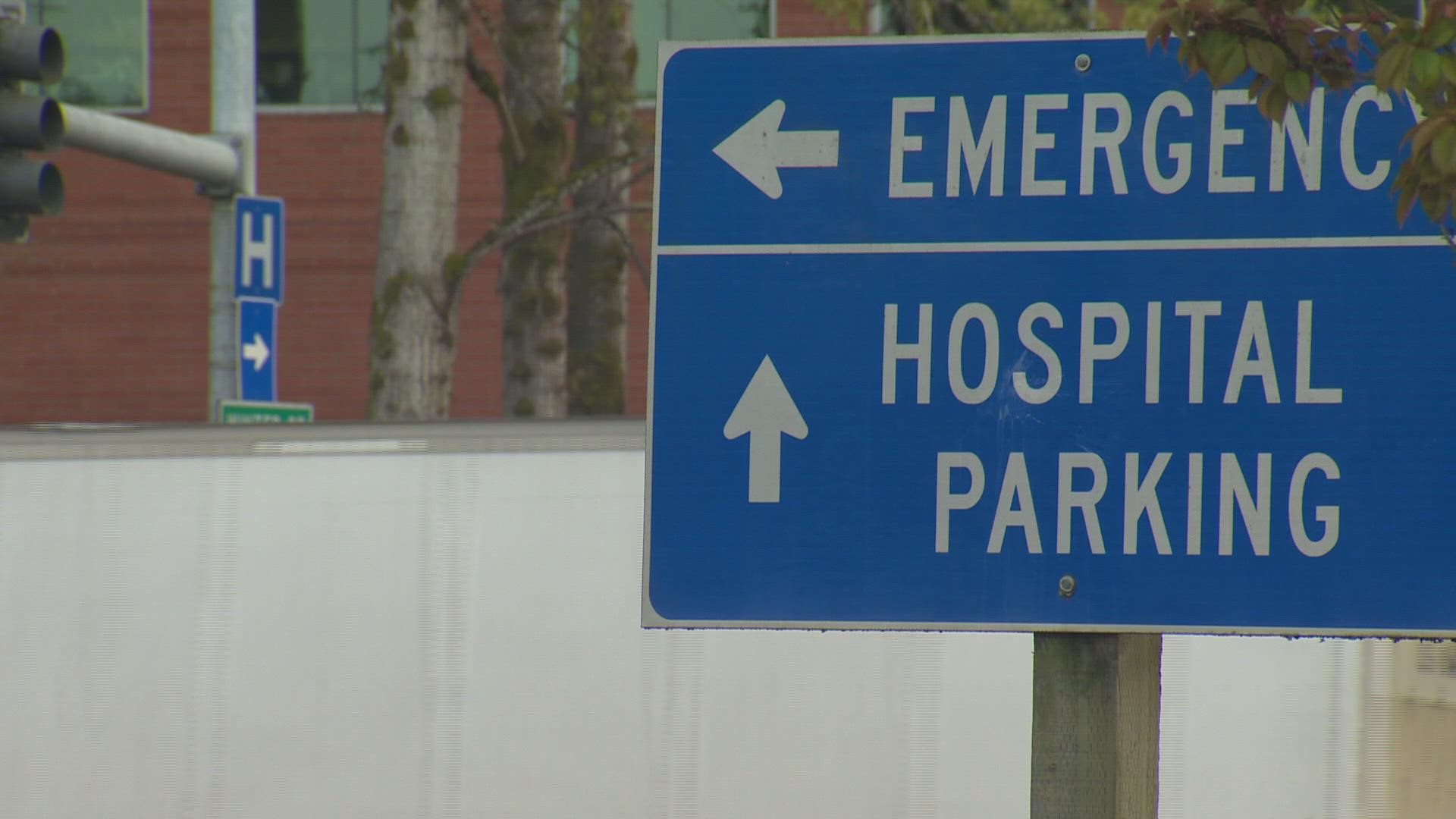PORTLAND, Oregon — With the number of COVID-19 patients dropping, the Oregon National Guard has started pulling troops out of hospitals around the state.
A spokesperson said 25% of troops will go home next week followed by another 25% reduction on Oct. 31. A small number of troops will remain on hospital duty through the end of the year, but most will be out of hospitals by the middle of November.
Many of those troops will be leaving from Salem Hospital.
The hospital has 494 beds but was given emergency authorization to care for as many as 534 patients. During the worst days of the pandemic, patient numbers were near that peak. Even with 2,000 nurses, it was more than they could handle.
“People were exhausted. Fatigued. It’s been a long 18 months for our staff and providers and physicians,” said Sarah Horn, chief nursing officer at Salem Hospital.
Salem Hospital is typically staffed assuming the hospital will have 75-80% of its beds full. When the delta variant of COVID sent more than a hundred patients to the hospital- everyone was swamped.
“None of us anticipated that. None of us staffed up for that,” said Horn.
In mid-August, when Oregon has seeing record COVID patient numbers, Gov. Kate Brown authorized 1,500 National Guard members to be sent to hospitals
“They tell me all the time that they’re very appreciative of us being here,” said Elliott Anderson as he worked a health checkpoint.
The troops are hard to miss in their military uniforms, and they're all over the place — from running health screening stations to moving supplies, delivering meals and more.
Deep in the hospital’s basement, Joseph Acurez sorts through some of the $1.5 million worth of inventory there.
“When I first came here, not gonna lie, I was kinda confused like how am I supposed to know where everything’s at?” he asked.
Now' he's able to quickly find whatever health care workers need, from bed pans to different sizes of needles.
Before the National Guard arrive, it was a struggle to get all the supplies — 20 pallets a night — into the hospital where it was needed, even with staffers working overtime.
Nine guard members pitched in and got it done, including two who worked the graveyard shift.
“They were real backed up with orders and us getting here definitely helped them out,” said Ryan Coffman, a senior airman who normally works full time for the Air Guard based in Klamath Falls at Kingsley Field.
On the fifth floor at Salem Hospital, fellow Air Guardsman Dan Conley put his laundry skills to work.


“They teach us how to fold laundry pretty extensively in basic training, so this one I feel semi qualified to do,” he said.
Conley has helped double the number of times nursing closets are restocked, allowing the nurses to focus on patients instead of hunting down supplies.
The fifth floor handles the overflow of the intensive care unit, where many COVID patients have ended up. Conley said that experience proved to be eye opening.
“When its serious, how serious it really is. When folks get intubated, you know, what that outlook and it’s not a good one so it definitely made COVID more real for me,” he said.
The hospital's food service has benefited as well. It serves about 1,100 food trays a day. When COVID hit, six hospital workers quit, so several National Guardsmen including Tommy Watson filled the gap.
Jonathan Osborne, a software developer in his civilian life in Forest Grove, has the job of cleaning rooms after patients leave.
“Some of those come up with high priority, short notice. So as soon as it comes in, you gotta rush over and get the room clean because some of them have patients already waiting to get in,” he said.
While it is still busy, the COVID numbers are down statewide. On Thursday, Salem Hospital had 63 COVID patients, down from its high of 112.
The staff knows guard members will soon move on, and they will be missed.
“Absolutely! They’ve really become part of our team, so yeah,” said Lisa Ketchum, director of women and children’s services.
“Having the National Guard here has been instrumental in terms of morale. They’ve offered a sense of protection. They’ve helped us navigate this crisis which has been quite frankly overwhelming for all of us,” said Chief Nursing Officer Sarah Horn.
Have a comment or story idea for reporter Pat Dooris? Email him at pdooris@kgw.com

